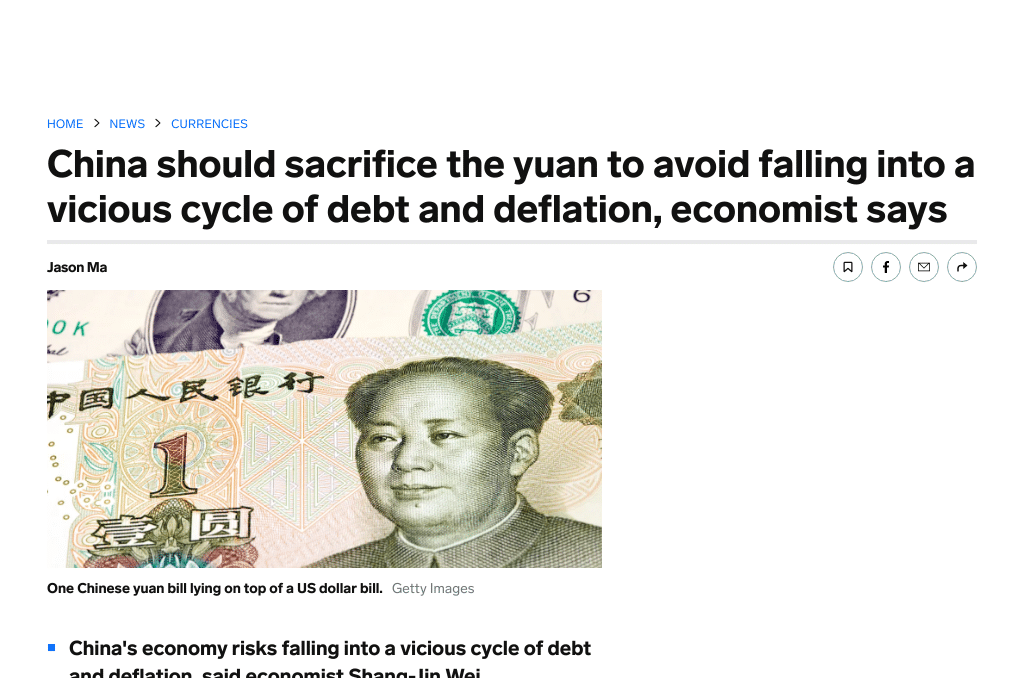China's economic growth is projected to slow down significantly in the coming years, according to economists. The latest forecasts suggest that China's economy, the second-largest in the world, will grow at a rate of 3.5% in 2030 and around 1% by 2050.[0] These projections are lower than previous estimates of 4.3% and 1.6%, respectively.[1] The slowdown in China's economy is a cause for concern and has raised questions about the country's ability to achieve its growth targets.
Recent forecasts for China's economic growth in 2023 and 2024 have been revised downward on Wall Street, indicating that the country may miss its own growth targets for the second consecutive year. If China's economy grows at a rate of less than 5% for three consecutive years, it would be an unprecedented occurrence since the death of Mao Zedong in 1976.[2] The stalling growth has significant geopolitical implications and poses challenges for President Xi, who aims to make China a “medium-developed country” by 2035.[0]
The Bloomberg Economics report suggests that it may take at least another two decades for China's GDP to surpass that of the United States. However, even if China does achieve this milestone, it is expected to fall back behind the US shortly afterward. The report predicts that China's GDP will surpass that of the US by a small margin in the mid-2040s before falling behind again. Previously, it was anticipated that China would overtake the US as the world's leading economy as early as the beginning of the next decade.
The slowdown in China's economic growth is attributed to several factors. The post-Covid rebound has lost momentum, partly due to a deepening property slump and fading confidence in Beijing's management of the economy. Weak confidence among businesses and consumers risks becoming entrenched, which could have a long-lasting negative impact on growth potential. The report highlights the need for Beijing to address these challenges and restore confidence in order to sustain economic growth.
China's economic risks are not limited to slowing growth. Economist Shang-Jin Wei warns that the country could fall into a vicious cycle of debt and deflation.[3] To avoid this trap, it may be necessary for China to allow its currency, the yuan, to depreciate. However, this approach comes with its own set of risks and challenges.
In contrast, the US economy is projected to grow at a rate of 1.7% in 2022-2023, with long-term forecasts indicating a gradual decline to 1.5% by 2050.[4] While the US may not experience the same level of growth as China, it is expected to maintain a more stable and sustainable growth trajectory.
Overall, the revised forecasts for China's economic growth indicate a challenging road ahead. The country faces the task of reigniting growth and restoring confidence in its economic management. The outcome of China's economic trajectory will have significant implications for the global economy and the balance of power between nations.
0. “Beijing Is Ceding The Economic Race As Growth Slows” Forex Factory, 5 Sep. 2023, https://www.forexfactory.com/news/1239680-beijing-is-ceding-the-economic-race-as-growth
1. “China slowdown means it may never overtake US economy, forecast shows” Moneycontrol, 5 Sep. 2023, https://www.moneycontrol.com/news/world/china-slowdown-means-it-may-never-overtake-us-economy-forecast-shows-11312001.html
2. “From Boom To Gloom China's Economic Momentum Dips” OilPrice.com, 5 Sep. 2023, https://oilprice.com/Finance/the-Economy/From-Boom-To-Gloom-Chinas-Economic-Momentum-Dips.html
3. “China Should Sacrifice the Yuan to Avoid Debt-Deflation Spiral” Markets Insider, 5 Sep. 2023, https://markets.businessinsider.com/news/currencies/china-economy-debt-deflation-spiral-yuan-vs-dollar-central-bank-2023-9
4. “China may never recover from COVID-19 blow, won’t become biggest economy before mid 2040s” Firstpost, 5 Sep. 2023, https://www.firstpost.com/world/china-may-never-recover-from-covid-19-blow-wont-become-biggest-economy-before-mid-2040s-13080882.html


